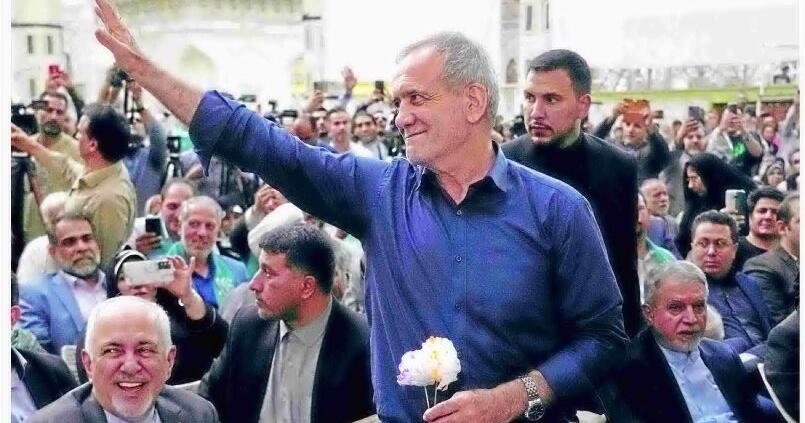Reformist candidate Masoud Pezeshkian emerged as the winner of Iran’s presidential runoff election on Saturday, defeating hard-liner Saeed Jalili by pledging to engage with the West and relax enforcement of the country’s mandatory headscarf law amidst years of sanctions and protests against the Islamic Republic.
Despite his moderate agenda, Pezeshkian has made it clear that he does not intend to make drastic changes to Iran’s Shiite theocracy, and he has always acknowledged Supreme Leader Ayatollah Ali Khamenei as the ultimate authority in the country.
However, Pezeshkian will face challenges in a government still dominated by hard-liners, the ongoing Israel-Hamas conflict in Gaza, and Western concerns about Iran’s uranium enrichment activities, which have raised fears of developing nuclear weapons.
People are also reading…
Official vote counts showed that Pezeshkian secured 16.3 million votes compared to Jalili’s 13.5 million in Friday’s election. The Interior Ministry of Iran reported a total of 30 million voters participated in the election, which was conducted without international observers, resulting in a turnout of 49.6% — higher than the first-round vote on June 28 but lower than previous presidential elections.
Supporters of Pezeshkian, a heart surgeon and seasoned lawmaker, took to the streets of Tehran and other cities early in the morning to celebrate as his lead over Jalili widened. Pezeshkian later visited the mausoleum of the late Grand Ayatollah Ruhollah Khomeini, the leader of the 1979 Islamic Revolution, and spoke to journalists in a chaotic event.
“I did not make false promises in this election. I did not lie,” Pezeshkian stated. “For many years after the revolution, we have been making promises on the podium and failing to fulfill them. This is our biggest problem.”
Tensions are high in the Middle East, and the upcoming U.S. election could jeopardize any potential reconciliation between Tehran and Washington. Pezeshkian’s victory was not a landslide, indicating that the doctor with no experience in high-level security positions will need to navigate Iran’s internal politics cautiously.
Government officials, including Khamenei, the supreme leader, anticipated a higher voter turnout as the election commenced, with state television showing moderate lines at some polling stations. However, online videos suggested some polling stations were deserted, while a survey of several sites in Tehran revealed light foot traffic and a heavy security presence.
Authorities reported 607,575 voided votes, often a signal of protest from individuals who felt obligated to vote but rejected both candidates. In response to inquiries from The Associated Press, the U.S. State Department labeled the Iranian election as “neither free nor fair” and highlighted that “a significant number of Iranians opted not to participate at all.”
Despite alleged boycott efforts orchestrated by Iran’s enemies, Khamenei commended the turnout on Saturday, emphasizing the resilience of the Iranian people.





